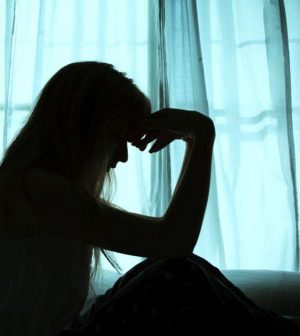- The Best Time of Day to Drink Bone Broth to Maximize Health Benefits
- 8 Ways to Increase Dopamine Naturally
- 7 Best Breads for Maintaining Stable Blood Sugar
- Gelatin vs. Collagen: Which is Best for Skin, Nails, and Joints?
- The Long-Term Effects of Daily Turmeric Supplements on Liver Health
- Could Your Grocery Store Meat Be Causing Recurring UTIs?
- Are You Making This Expensive Thermostat Error This Winter?
- Recognizing the Signs of Hypothyroidism
- 10 Strategies to Overcome Insomnia
- Could Artificial Sweeteners Be Aging the Brain Faster?
Lockdowns’ Effects on Health Still Less Than Harm From Pandemic: Experts

While there’s been much talk about pandemic lockdowns being a burden on people’s health, new research finds the effects of large COVID-19 outbreaks are typically worse.
“It is unlikely that government interventions have been worse than the pandemic itself in most situations,” say the authors of an international study published July 19 in the BMJ Global Health.
There’s been ongoing debate about whether the benefits of lockdowns outweigh their damage to people’s mental and physical health.
But the new study found that lockdowns in Australia and New Zealand — which avoided large outbreaks — were not associated with large numbers of deaths.
In contrast, places that had few COVID-19 restrictions — such as Brazil, Sweden, Russia, and certain parts of the United States — had high COVID-19 death rates.
The findings provide “strong evidence that lockdowns themselves are not sufficient to cause such surges in deaths,” wrote authors Gideon Meyerowitz-Katz, from the University of Wollongong in Australia; Samir Bhatt, professor at the University of Copenhagen in Denmark, and Dr. Gavin Yamey, from the Duke Global Health Institute in Durham, N.C.
They also found no evidence that lockdowns restricted people’s access to and use of health care services, resulting in long-term risks to people’s health.
They suggested that other factors led to reduced use of health care services during the pandemic: overstretched health care services; redeployment of staff and facilities to manage COVID-19 patients; and people staying away from hospitals due to fears about coronavirus infection.
While it’s clear that people’s mental health suffered during the pandemic, there is strong evidence that lockdowns weren’t associated with increased deaths from suicide, according to the authors.
They also noted that while missing school affects children’s mental health, so does losing a loved one to COVID-19. In the United States, an estimated 43,000 children have lost a parent to COVID-19, and 2 million have lost at least one grandparent.
The pandemic has had a severe impact on global health programs in low- and middle-income nations, with 80% of HIV programs and 75% of TB programs reporting interruption of services. By May 2020, childhood vaccination campaigns had been disrupted in 68 countries.
These problems are due to many direct and indirect consequences of COVID-19, the authors said, not just stay-at-home orders.
Overall, it is “is often extremely difficult to separate the potential impacts of ‘lockdowns’ from those of the pandemic itself,” the researchers noted in a journal news release.
They did not conclude that lockdowns don’t cause any harm. “Often the most that it is possible to say is that there are harms associated with both large COVID-19 outbreaks and government interventions to prevent the disease,” the authors wrote. “The causal relationships are, unfortunately, extremely difficult to untangle.”
They added: “Governments were not faced with the choice between the harms of lockdown and the harms of COVID-19, but rather sought to find the means to minimize the impact of both.”
More information
The U.S. Centers for Disease Control and Prevention has more on COVID-19.
SOURCE: BMJ Global Health, news release, July 19, 2021
Source: HealthDay
Copyright © 2026 HealthDay. All rights reserved.










